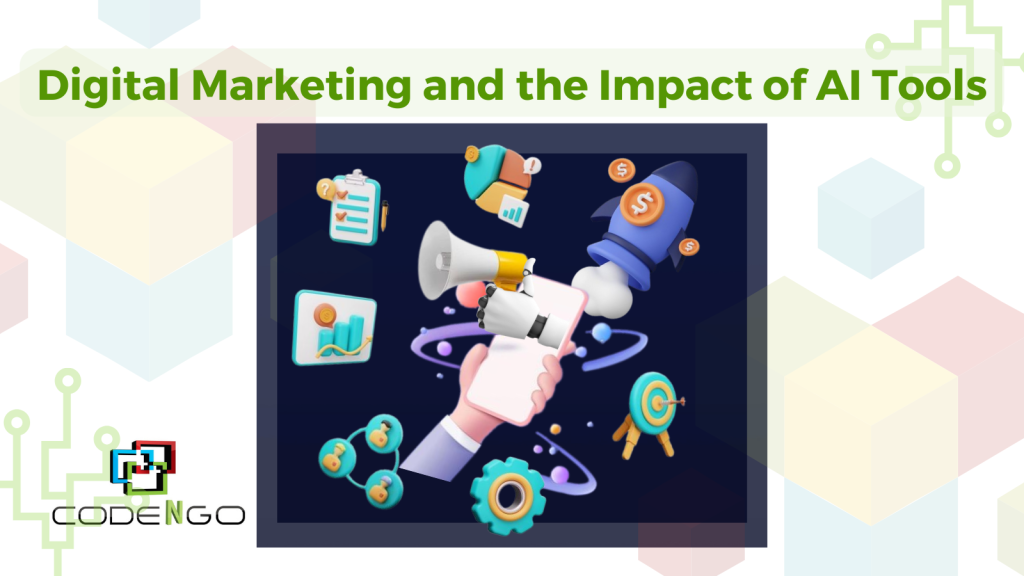
Digital marketing has seen a dramatic shift in recent years, significantly driven by advancements in Artificial Intelligence (AI). AI tools have become central to the strategies businesses employ to enhance their marketing initiatives. These tools not only improve personalization but also automate mundane tasks, introducing new opportunities and transforming customer engagement methods. Despite these advantages, there are considerable challenges that accompany the use of AI in digital marketing. This article delves into both the benefits and the drawbacks, providing insights on how businesses can effectively use AI tools to secure a competitive advantage.
Pros of AI in Digital Marketing
-
Enhanced Personalization: AI excels in analyzing large datasets to extract meaningful patterns and insights. This capability enables marketers to tailor content, recommendations, and experiences to individual preferences and behaviors. For instance, AI algorithms can suggest personalized email content to subscribers based on their interaction history, increasing engagement rates and customer loyalty.
-
Improved Customer Insights: AI-powered analytics tools can process and interpret complex customer data from multiple sources, including social media, website interactions, and purchase histories. This deep understanding helps businesses anticipate needs and design more effective marketing strategies.
-
Automation of Routine Tasks: Automation is one of the most significant benefits of AI. Tasks such as scheduling social media posts, managing ad placements, and conducting A/B tests can be automated, freeing up human marketers to focus on more strategic activities. This not only reduces labor costs but also increases productivity and efficiency.
-
Optimized Ad Spend: AI can analyze the performance of advertising campaigns in real-time, adjusting bids and reallocating budgets to maximize ROI. Programmatic advertising platforms use AI to buy and place ads in an automated way, targeting specific audiences at the optimal time and location.
-
Real-Time Decision Making: With AI, decisions can be made much faster than humanly possible. For example, AI tools can dynamically adjust marketing campaigns and even develop content in response to real-time data and trends.
Cons of AI in Digital Marketing
-
High Initial Investment: Implementing AI technology can be costly, especially for small to medium-sized enterprises (SMEs). The initial setup, including acquiring the necessary tools and training staff, requires significant upfront investment.
-
Lack of Human Touch: While AI can significantly enhance efficiency and personalization, it lacks the human element that is sometimes necessary in creating truly engaging and emotionally resonant content. Over-reliance on AI could lead to a disconnect with customers who value human interaction.
-
Privacy and Ethical Concerns: The use of AI in digital marketing raises substantial privacy and ethical issues. Handling vast amounts of personal data requires stringent data protection measures and compliance with data protection laws, such as GDPR in Europe.
-
Dependency and Skill Gap: Dependency on AI can lead to a degradation of skills among marketing professionals. Moreover, there is a steep learning curve associated with using advanced AI tools, which can be a barrier for many businesses.
-
Accuracy of AI Outputs: AI systems are only as good as the data they are trained on. Biased or insufficient data can lead to inaccurate conclusions, which could harm marketing efforts.
Leveraging AI for Maximum Benefit
To maximize the benefits of AI while mitigating potential drawbacks, businesses should consider the following strategies:
- Adopt a Hybrid Approach: Combine human creativity with AI efficiency to balance personal touch with automation.
- Invest in Training: Equip your team with the skills to use AI tools effectively and understand their outputs.
- Prioritize Data Privacy: Be transparent about data usage and adhere strictly to data protection laws.
- Monitor AI Decisions: Regularly review and assess the decisions made by AI systems to ensure they align with your overall business objectives and ethical standards.
Conclusion
AI in digital marketing offers a range of exciting possibilities along with significant challenges. By understanding these dynamics and carefully integrating AI tools into their marketing strategies, businesses can enhance their customer engagement, optimize their marketing efforts, and ultimately drive greater success. As the digital landscape continues to evolve, staying ahead in AI utilization will increasingly become a key differentiator in the competitive world of digital marketing.
Share this article on